Mastering Competency in Scuba Diving: The Path From Novice to Expert Diver
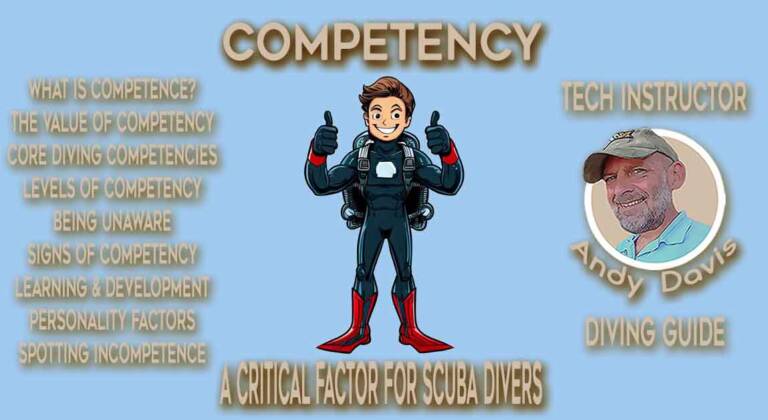
What is scuba diving competency? How does it differ from skills & experience? Learn how to improve your competency and why that matters!

Articles for beginner to expert scuba divers

Articles for beginner to expert scuba divers

What is scuba diving competency? How does it differ from skills & experience? Learn how to improve your competency and why that matters!
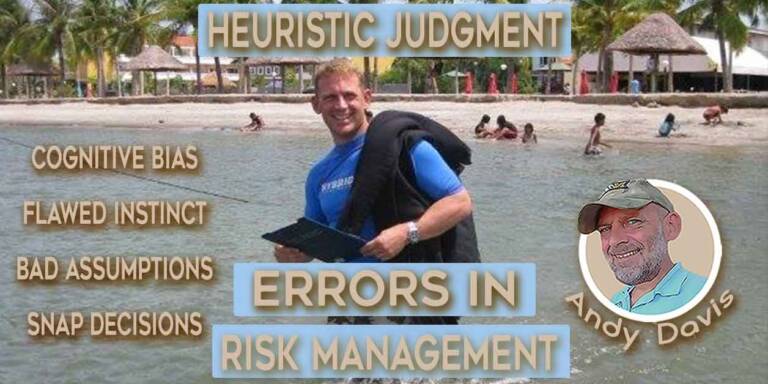
Learn how heuristic thinking harms scuba diving risk management. Read this to safeguard against cognitive biases for safe & successful dives!
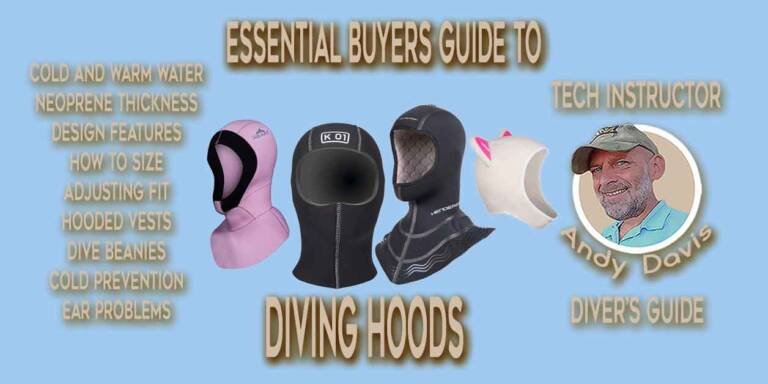
Choosing the right diving hood has never been easier with this comprehensive guide. What you need to know to dive with warmth and comfort.
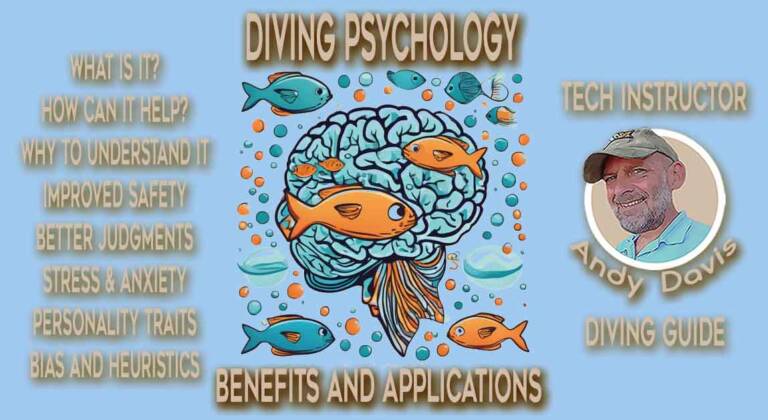
Learn about the science of diving psychology and how it can enhance your skills, safety, and enjoyment underwater.
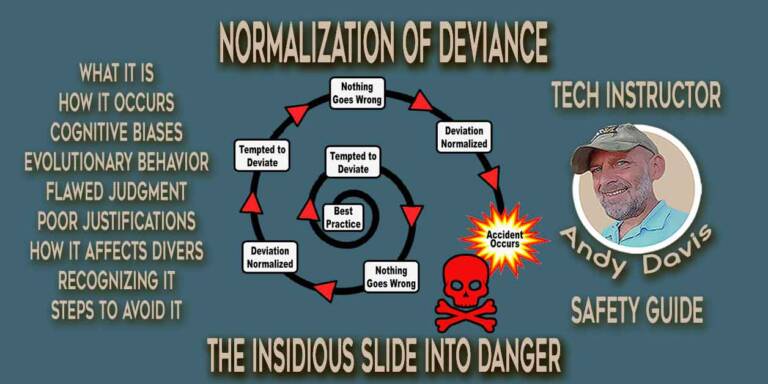
A must-read guide to normalization of deviance: the dangerous slide into irrationally justifying bad diving judgments & avoidable accidents.
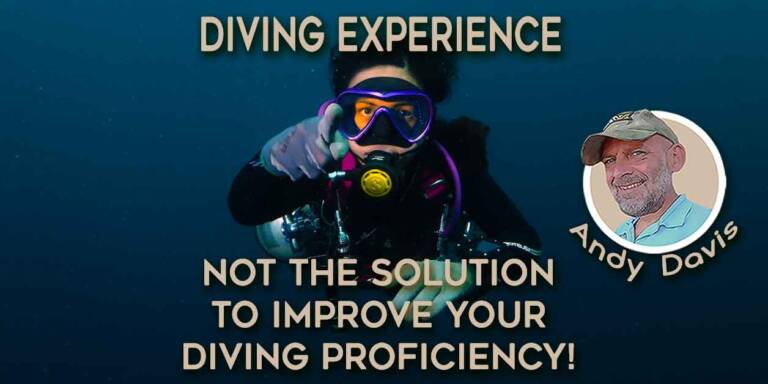
Diving experience isn't the path to mastery. Read this to learn what is really necessary to develop expertise as a scuba diver!
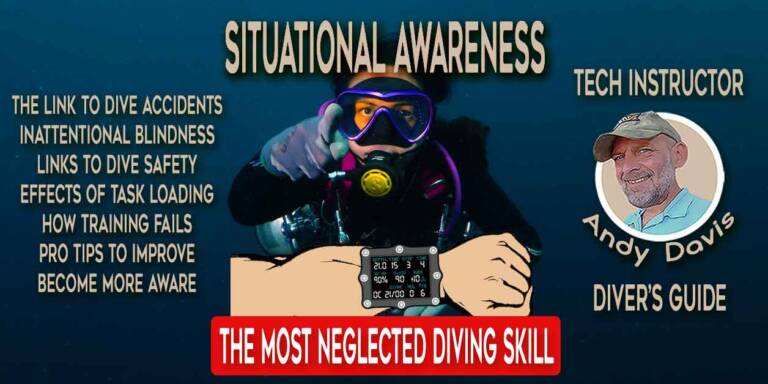
Discover the key to safer diving: situational awareness. How can poor training diminish it? And what steps can you take to improve it?
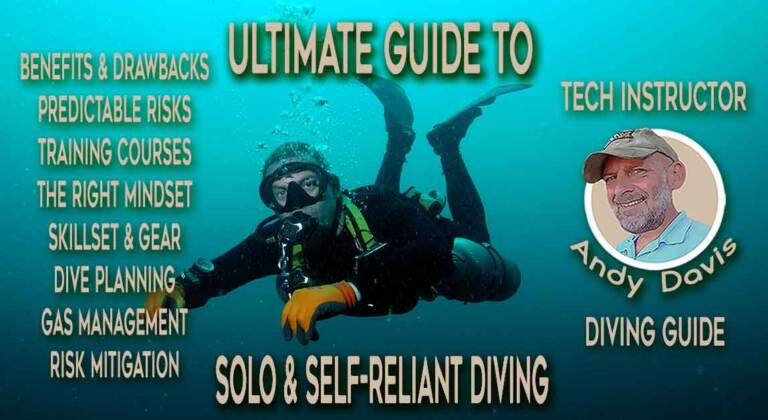
Must-know advice for a pathway to being a safe solo diver. Honest dive pro insights on self-reliant training & independent diving abilities.
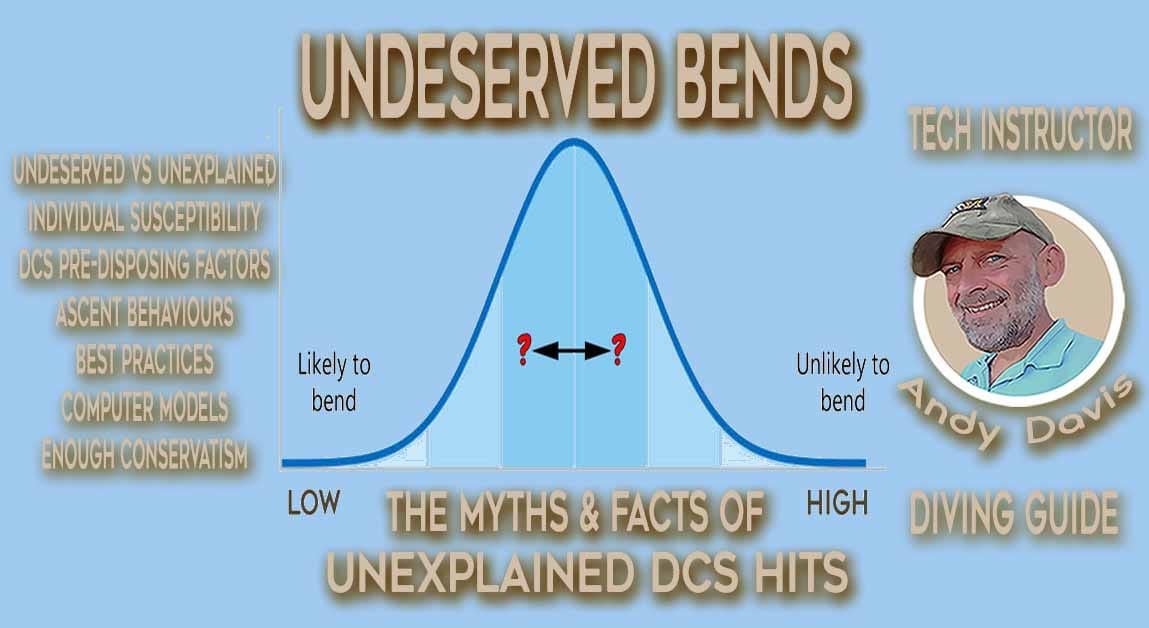
Unexplained DCS hits can leave divers puzzled. Dive into the facts and myths of undeserved bends to understand and mitigate your DCI risks.
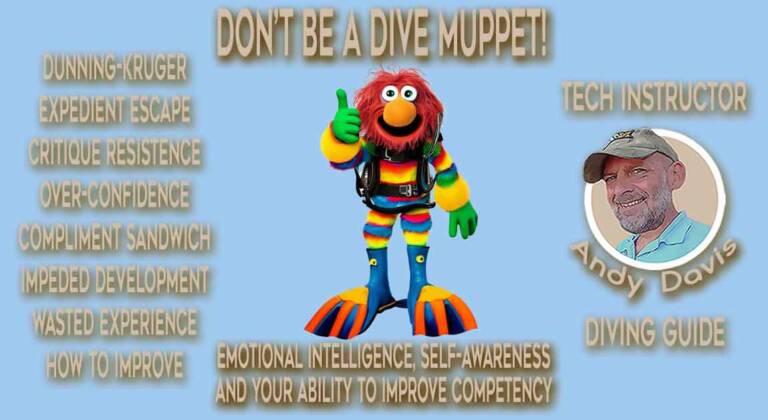
Learn how emotional intelligence and self-awareness contribute to the mastery of diving skills and the mitigation of dive safety risks.
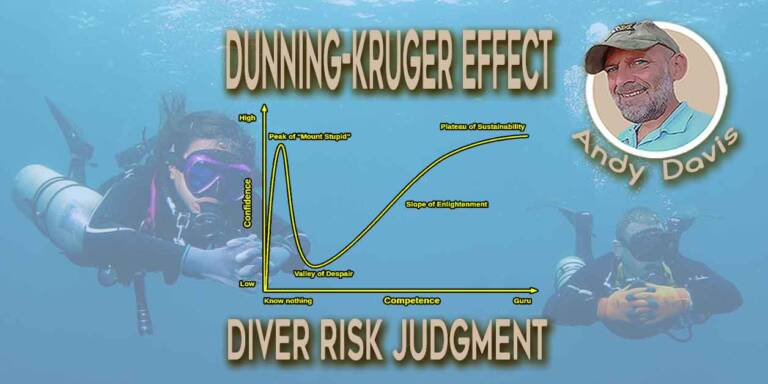
The impact of Dunning-Kruger Effect in scuba diving risk assessment. Dive into the psychology of over-confidence & flawed diver judgment.
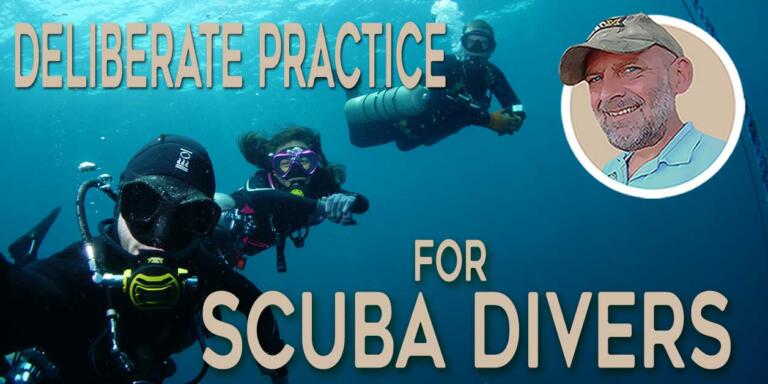
Deliberate practice is a methodology for the most efficient skill development. Learn how to fast-track your diving competency with this guide.
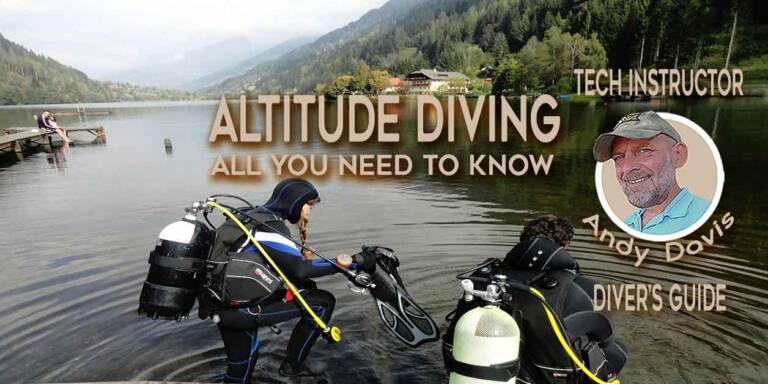
Altitude Diving Demystified: A complete guide to high-altitude underwater exploration. Expert tips & insights for unforgettable experiences.
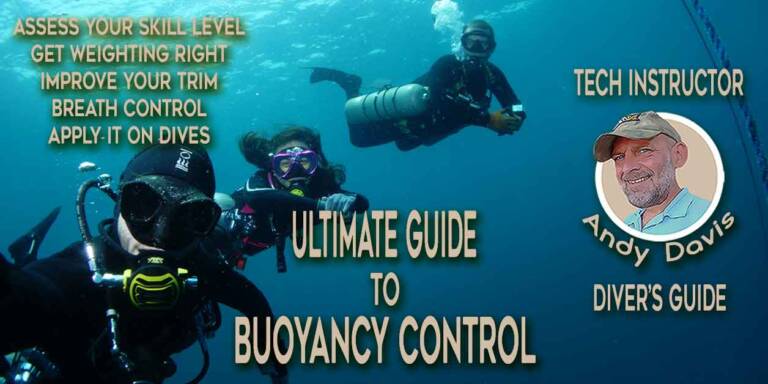
Unlock the secrets of developing perfect buoyancy control in this comprehensive step-by-step divers guide!
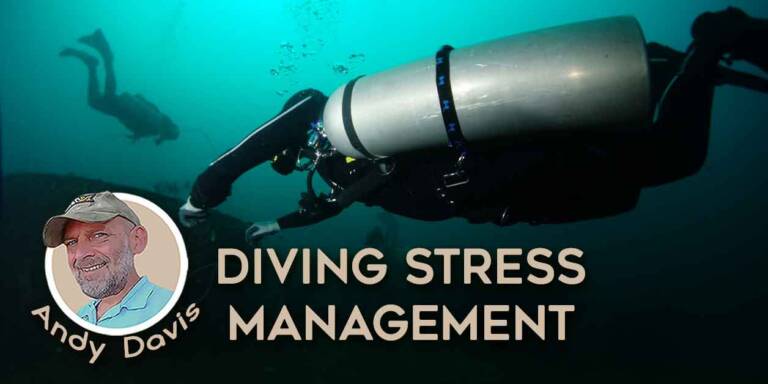
A realistic examination of scuba diving stress management. What does it REALLY take for a diver to overcome panic when a dive goes wrong?
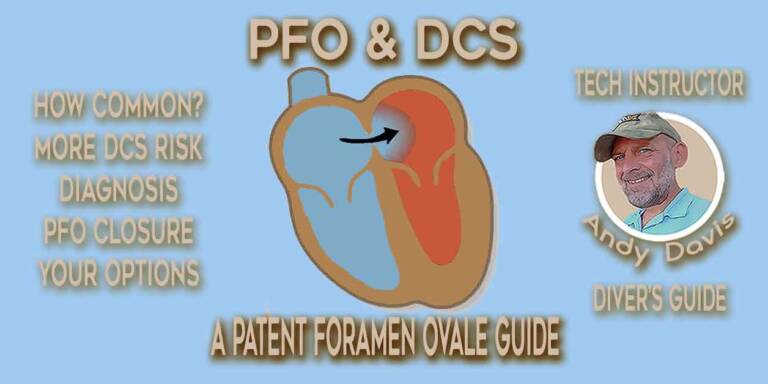
What every scuba diver should know about PFO (Patent Foramen Ovale) and DCS risk. Is your heart putting you at risk?

Did you know that scuba diving anxiety can arise from CO2 narcosis? Learn why descent speed, gas density & exertion can affect your dives!
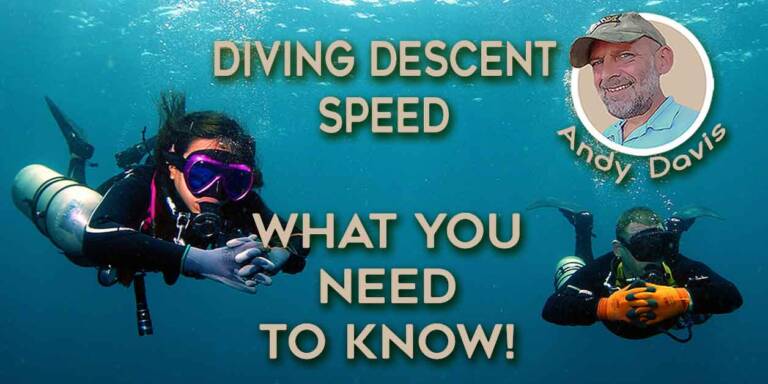
This article has everything that you were never taught about scuba diving descent speed! What effects and issues does the descent rate have?
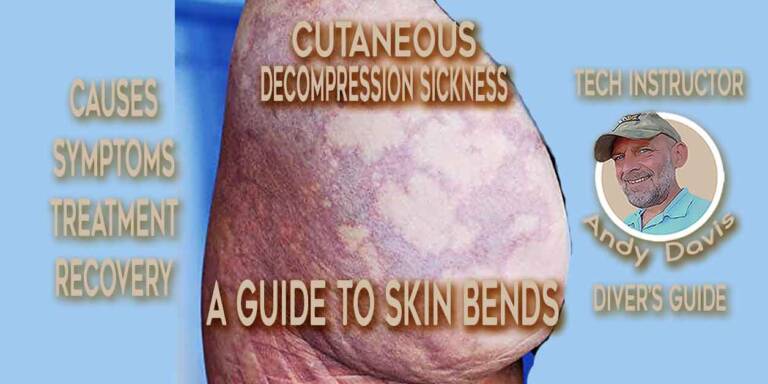
A guide to Cutaneous Decompression Sickness, aka skin bends, that result from inadeqate deco, fast ascent, or PFO issues when diving.
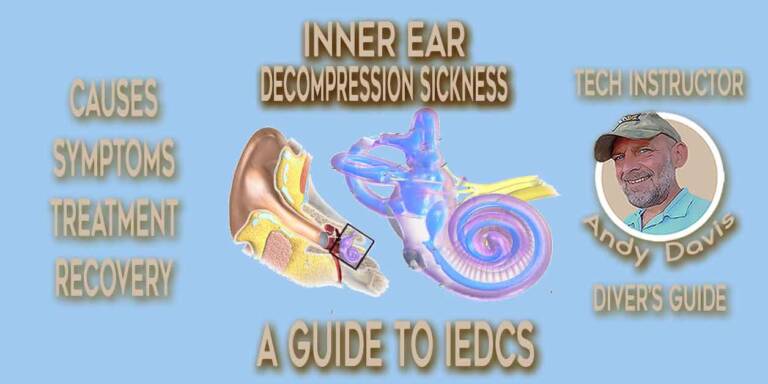
A guide to understanding Inner-Ear Decompression Sickness, aka IEDCS or verstibular bends, that result from IBCD or PFO issues when diving.
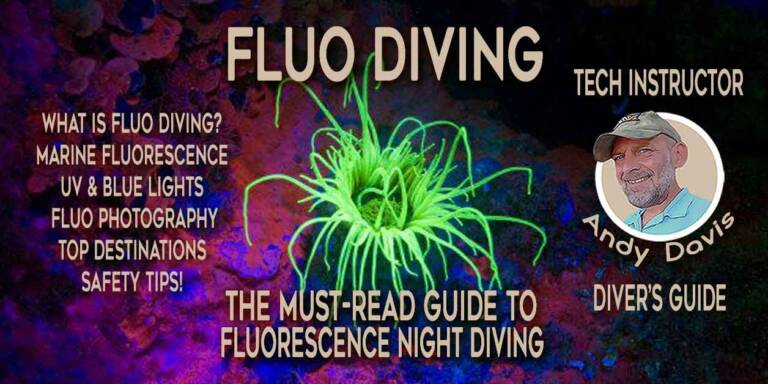
Discover the magical world of fluorescence night diving. Dive into neon colors & biofluorescence with fluo diving! Tips, gear & the science!
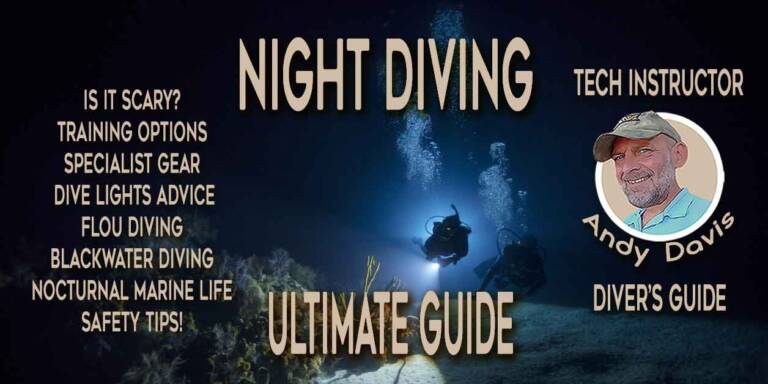
Explore the thrill of night diving safely and confidently with this comprehensive guide. Learn the gear, techniques, tips and marine life!
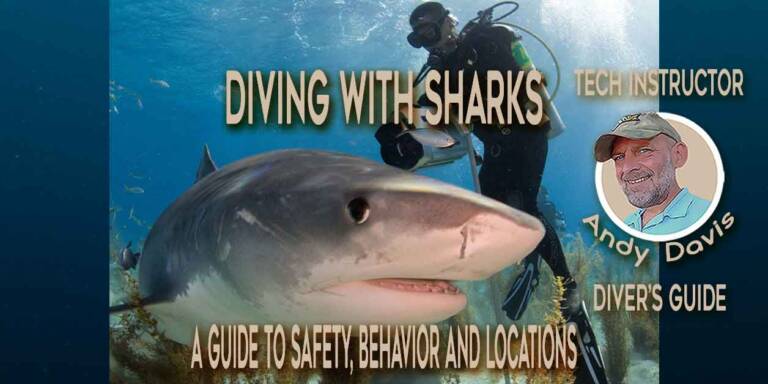
Crucial tips for diving with sharks. Safety measures, statistics, types of shark diving, & the best global destinations for shark diving.
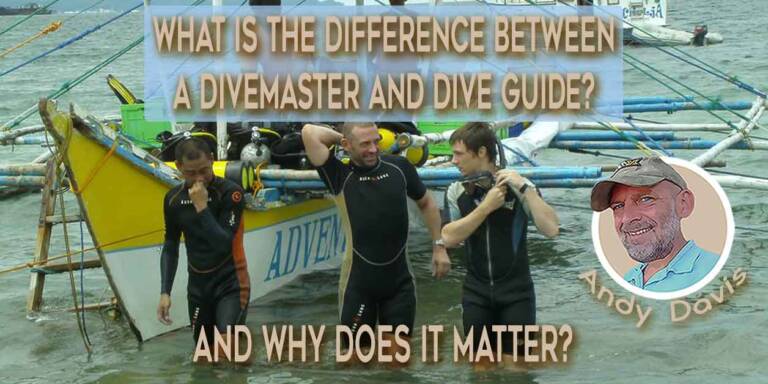
When taking a scuba diving vacation it's important to know whether you have a dive guide or a divemaster. Learn the crucial differences here!
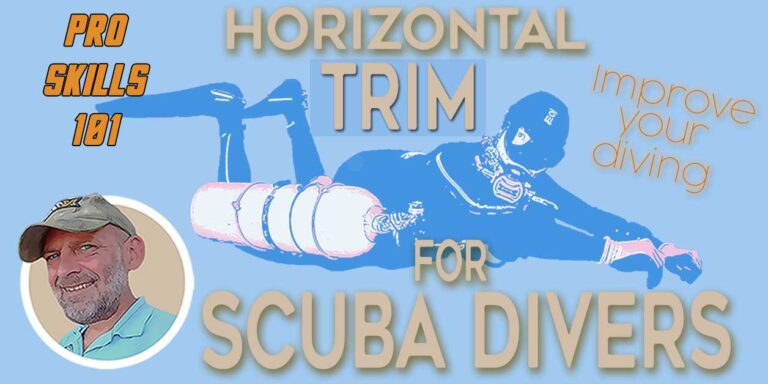
How to develop your scuba diving trim and become a more comfortable, confident & competent diver. Follow these simple tips for swift progress!
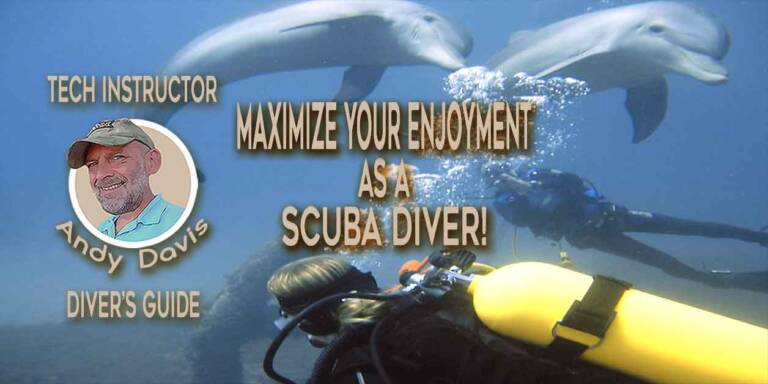
Getting the most enjoyment from your scuba diving. Turn gratification into passion! A philosophical & psychological path to diver fulfillment.
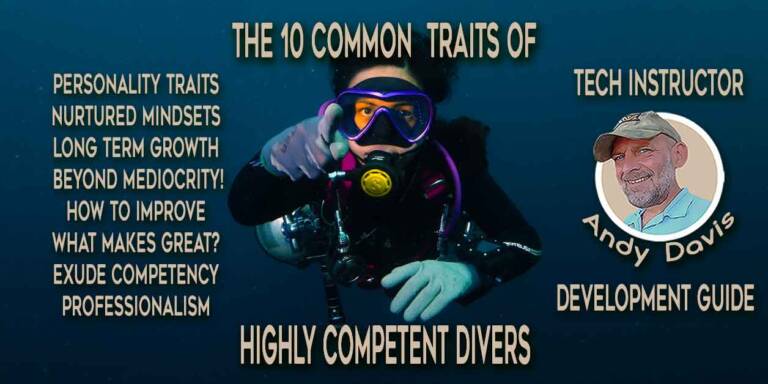
Want to excel as a diver? Discover the 10 common traits that define highly competent divers. Implement these concepts to enhance your diving!
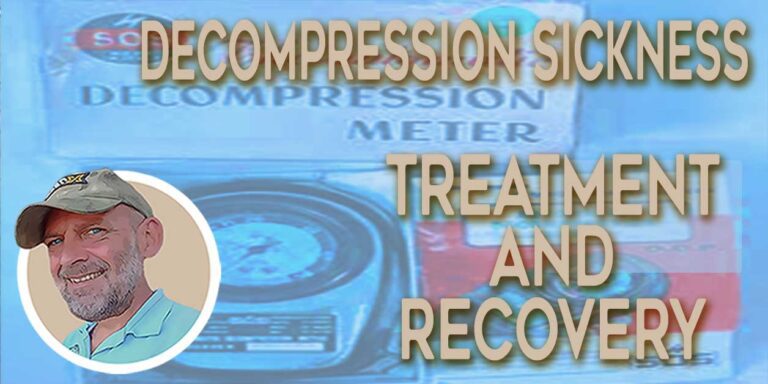
Richard Pyle's educational account of his experience with decompression sickness, treatment & the recovery. A valuable read for divers.

Learn the benefits of obtaining a scuba diving certification, including improved safety, access to more dive sites, & enhanced diving skills.
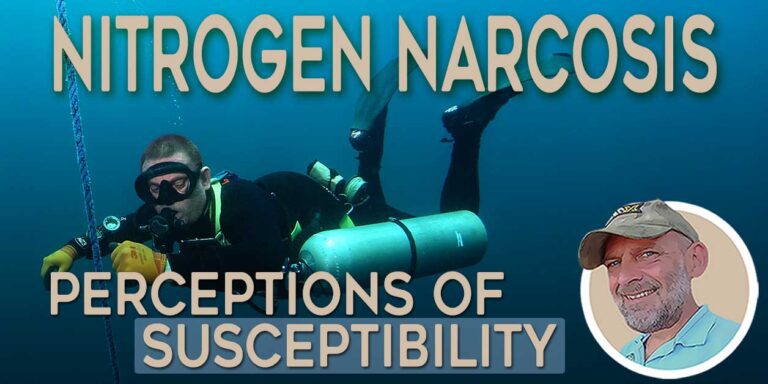
How do scuba divers perceive nitrogen narcosis? Is it possible to gauge your susceptibility to narcosis & make sound judgments to manage it?
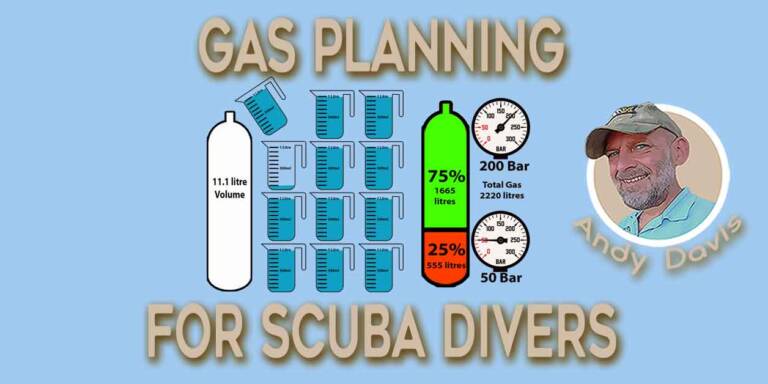
Learn scuba gas planning for your dives! A step-by-step guide to gas management for divers. Enhance your dive knowledge & safety underwater!
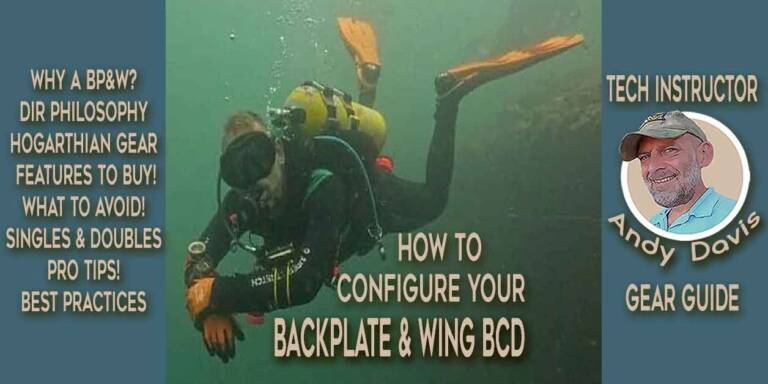
Discover how to perfect your backplate and wing diving rig with DIR and Hogarthian principles for the perfect diving experience!

Honest expert pro tips to help prevent costly mistakes when buying your dive gear. Don't regret your scuba equipment purchases!
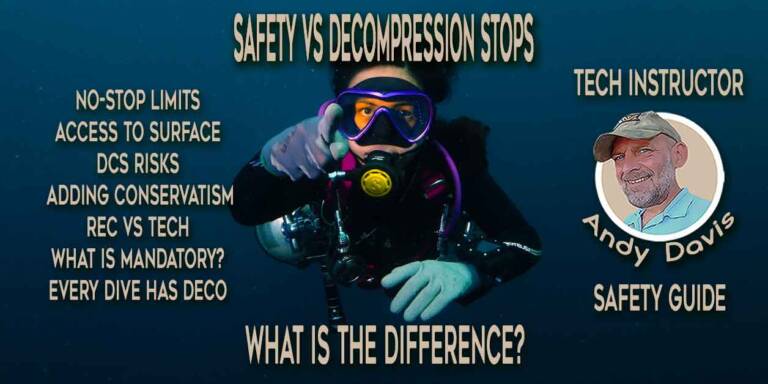
The important distinctions between safety stops & decompression stops in scuba diving. Understanding no-stop limits versus mandatory deco.
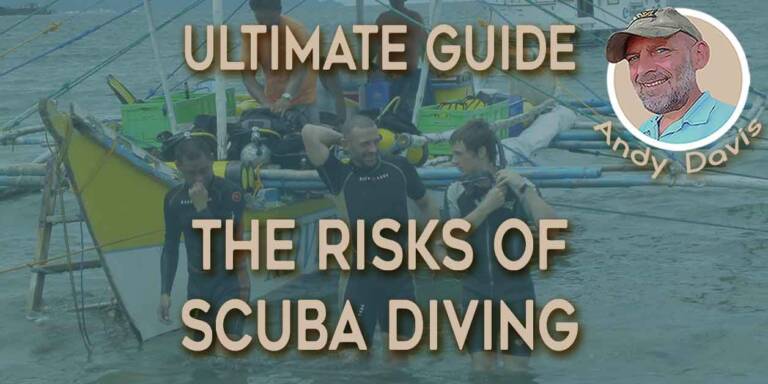
Understand the potential risks of scuba diving and how to minimize them. Learn about the most common dangers and how to stay safe.

When scuba equipment shopping it's easy to waste money on disappointing or inappropriate dive gear. These honest pro tip helps avoid costly mistakes!

My review of the best technical diving computer available in 2025. All the specifications and critique you need to make an informed decision!
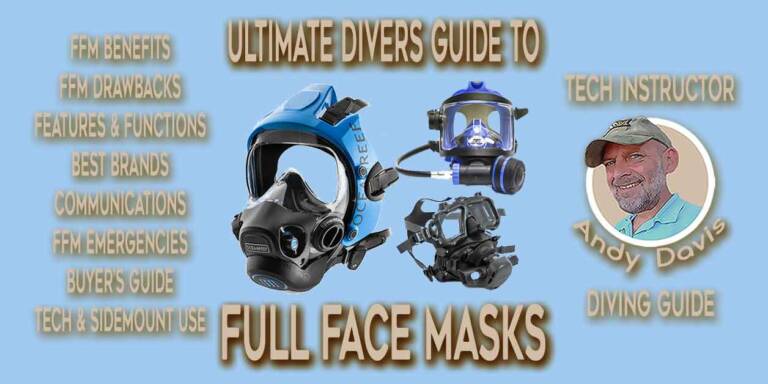
Learn everything you need to know about diving with Full Face Masks (FFM) in this very comprehensive diver guide. Buyer's advice and pro tips!
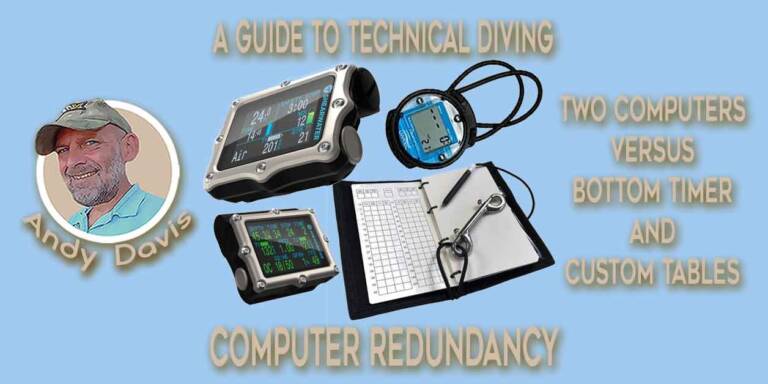
Discover the pros & cons of redundant computers versus backup bottom timers & tables in technical diving. Which option is best for you?

Scuba diving FAQs answered by an expert professional diver with 30 years of dive experience! Essential tips for safe & enjoyable dives!

Scuba Q&A Question: I was taught that “recreational divers plan all dives to be no stop dives” and also that most agencies consider 40m /130 feet as the maximum depth for recreational deep diving. That seems inconsistent when my…

Scuba Q and A: QUESTION: I am a recreational diver and I dive mostly with my husband. Our relationship issues (bickering) caused me stress. Is this a factor I should consider when scuba diving? Andy’s Answer: [no_toc] I know of…

Why do technical decompression divers use nitrox in the shallower part of their dive? Using nitrox and oxygen reduces deco time & DCS risk.